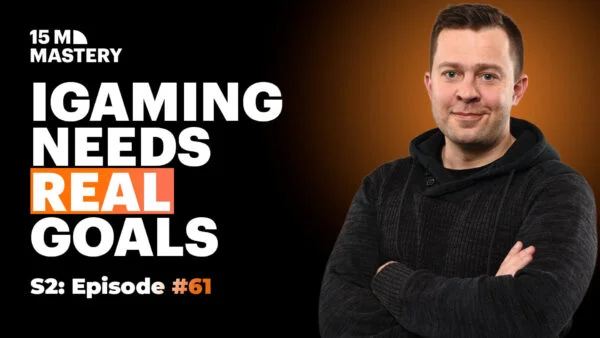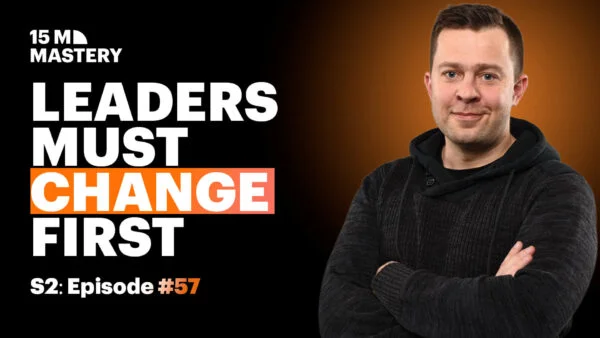From Outputs to Ownership: Building Product Teams That Drive Real Business Growth
In this episode of 15M Mastery, Dmitry Belianin sits down with Serhiy Berezhnyy, product growth advisor and former Chief Product Officer at Parimatch, to discuss the quiet crisis of ownership affecting product teams, and how to fix it.
“Everybody has been assigned with tasks. All tasks are done. But results are not achieved,” Serhiy explains. “Somebody should step in and say, this is the point when we need to integrate. There must be a person who’s responsible for outcomes.”
It’s not just about misalignment between output and results, it’s also about how product roles are interpreted in different markets.
“In the United States, product managers are hired to drive growth with business. In Europe, they’re hired to support the roadmap. Same role, completely different expectations,” Serhiy adds.
Communication discipline is now a competitive advantage
Hybrid workforces and remote-first teams have only made the problem worse. But Serhiy doesn’t think going remote is the problem, it’s the lack of operational discipline that comes with it.
“We are losing a touch of our clients,” he says. “I probably interviewed 200 people from the United States before starting a wellness product. But it’s not just about research. It’s about discipline. Communication discipline is one of the most important factors.”
Serhiy believes the real opportunity post-COVID is not to complain about remote challenges but to embrace the tools, cadence, and workflows that drive asynchronous, outcome-driven collaboration.
“It’s like whining about the rain. Rain is already happening. Just accept it, take your umbrella, and go with it.”
The most successful product KPIs look more like habits than goals
Many iGaming teams still measure success with vanity metrics, or worse, they manage performance through irrelevant KPIs that nobody believes in.
“The most successful users of a weight loss app were not the ones who wanted to lose 15 kilos,” Serhiy says, drawing from his experience in the fitness tech space. “They were the ones who committed to doing a number of exercises per week. Rain or shine. You show up and you do it.”
This behavioural insight translated into his product KPI philosophy.
“In 80% of the organisations I’ve worked with, there’s a list of KPIs, and then there’s the work that must be done regardless. You cannot move fast without focus. You can improve 200 parts of your product, but only a few of them make you grow.”
The bigger issue is that teams don’t believe the KPIs are real.
“People are not idiots. If they see a KPI that doesn’t change anything in their organisation, they’ll do it formally. That’s the crisis of KPIs right now.”
Experiments don’t drive growth, understanding customers does
For many companies, experimentation has become a cargo cult. They say they’re data-driven, but they’re really hiding behind the process to avoid responsibility.
“Everybody wants to do experimentation now. Everything must be tested, verified, statistically proven. Then, if it doesn’t work, no one is to blame. But a backlog of 200 tests means nothing if there’s no problem to solve.”
Real experimentation, according to Serhiy, is a tool for exploring customer behaviour, not ticking boxes.
“Changing the headers in your CRM is not an experiment. That’s operational routine. A real experiment is asking: why don’t our users log in with Apple ID? What are they afraid of? Then you test something real.”
Fast-moving teams aren’t always growing teams
Speed alone is not a growth strategy. And in high-pressure industries like iGaming and AI, Serhiy sees a dangerous confusion between momentum and progress.
“You can make people move fast, but it’s just chaotic motion. Molecules moving randomly. That’s not growth.”


